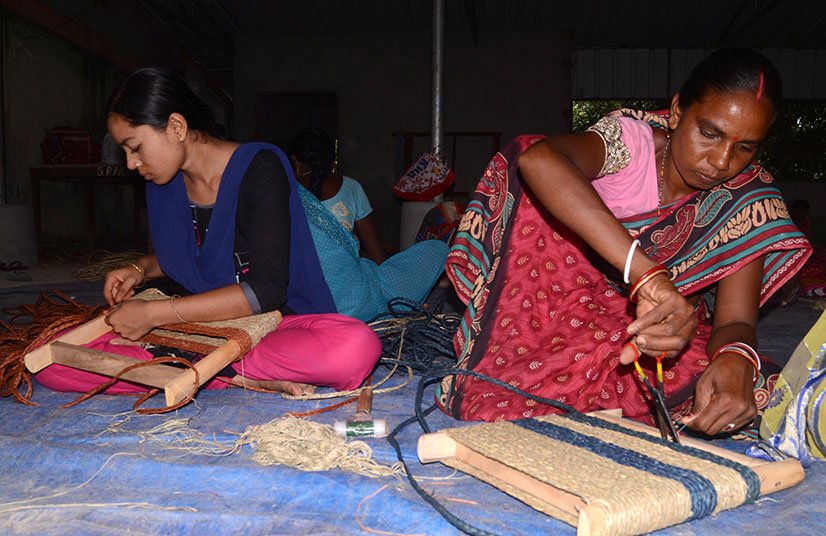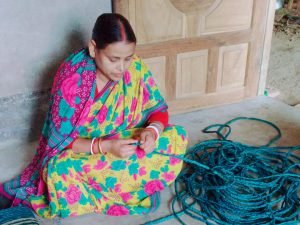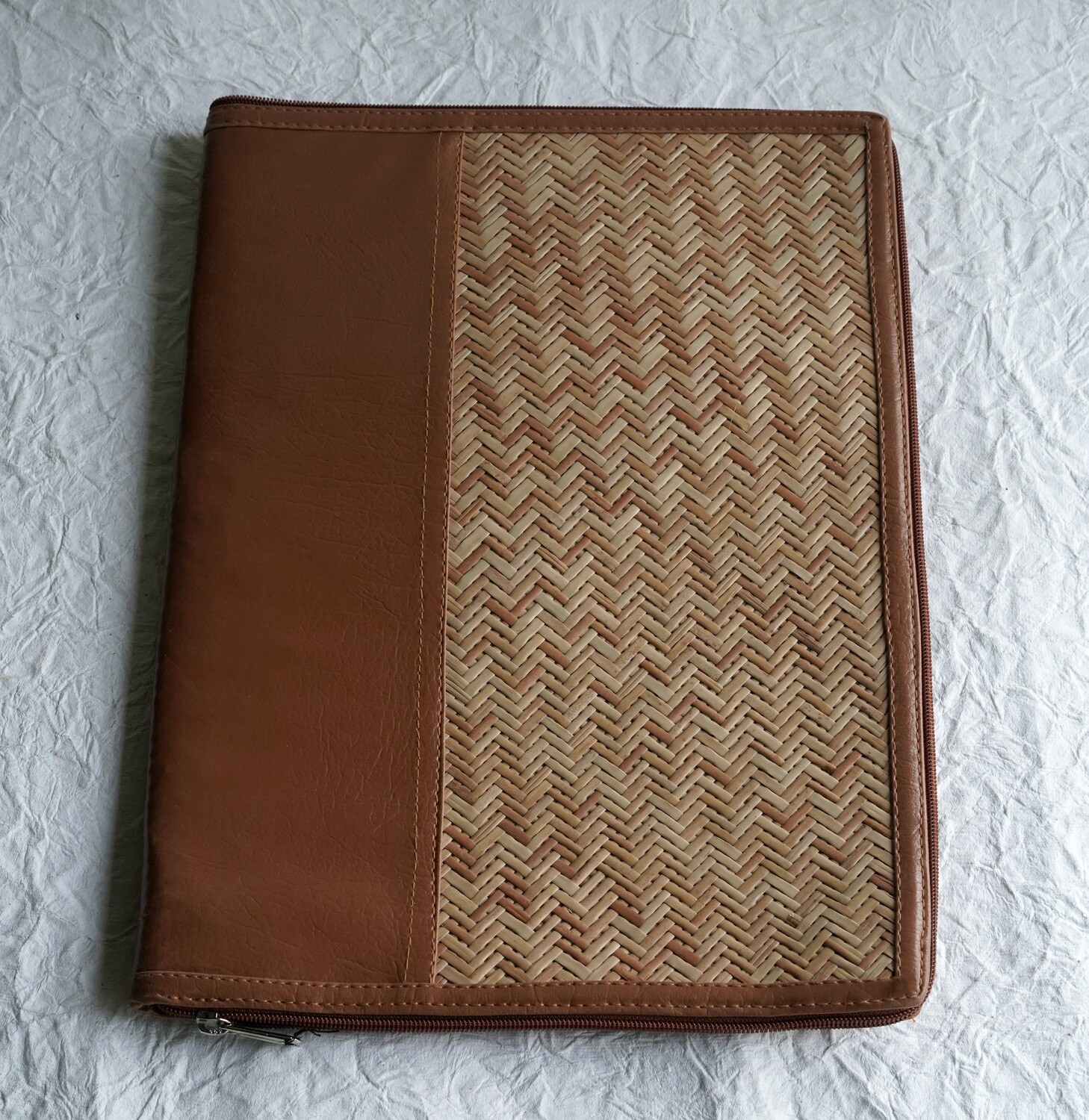Sabai Grass
SABAI GRASS is one of the fine natural fibres that has the potential to be coloured or dyed. The local individuals are dependent on the collection of a variety of leaves and grasses. These leaves and grasses are the main source of income for the local individuals for a period of time. The only product made from Sabai grass was ropes. Now it is used to make baskets, cots, coasters, decorative boxes, wall hanging and furniture.
Sheetal Patti & Rexin Handcrafted Folder
The Sheetal Patti & Rexin Handcrafted Folder is a beautifully crafted item, made with care and precision by our skilled artisans. This unique folder combines two high-quality materials—Sheetal Patti and Rexin—to create a functional yet aesthetically pleasing accessory. The intricate Sheetal Patti embroidery brings a rich, textured appeal, while the sleek, smooth finish of Rexin enhances its durability and adds a modern touch, making the folder both stylish and practical.
Designed with a rectangular shape and a sleek silhouette, this folder offers a sophisticated and professional look. The interior features open pockets that provide ample space to securely store your documents, notes, and other essentials. Whether you’re organizing important paperwork for a meeting or carrying personal items like receipts and stationery, this folder ensures your belongings are neatly organized and easily accessible.
Material: Sheetalpatti and Rexin
Dimensions: 36*27*2cm
Making Process
The process of Sabai Grass is done in the Easter and Central part of India. Popularly known as Sabai is one of the old techniques of Indian culture.
The steps followed in Sabai Grass process is given below:
- The grass is cut from the Peepul Tree.
- The bundle of grass is placed in the sun for 3 to 4 days for drying.
- Once the grass is dried, the bundle of grass is cut in layers.
- Then weaving is done.
- Now finally painting and stitching is done as per the product requirement.

Beneficiary

Mirdolo mahato
Mirdolo mahato is from a family of farmers. She was trained in the Sabai making process and now independently can manufacture Sabai products. She is married and has three children. Her husband also helps her in the process. This interest in making the Natural Fibre product has made her one of the bread winners of the family. She earns around Rs. 300 per day

